
The 2023 Restaurants Canada show was a great success! I hope everyone made it home safe, with plenty of great ideas on the direction of and on sales trends in the hospitality industry. For us, the RC show was an opportunity to see great people face-to-face, strengthen our relationships with them, learn more about fresh perspectives in the industry, and have interesting, in-depth conversations about hospitality in all its forms.
This year, Tarrison exhibited with a large island booth featuring both commercial restaurant furniture and stainless steel bar equipment, designed by Demi Melissinou of Demi Melissinou Design. We also contributed to the patio section of the RC Pop Up Experience. Designed by Stacy Di Carlo of Yellowbird Design, the space showcased food and beverage innovations and displayed new trends in design, furniture, and equipment. It was a fantastic way to meet more industry professionals and show what we can do in a setting that was a little bit different than our booth. Not to mention, such a fabulous area to host workshops and parties!


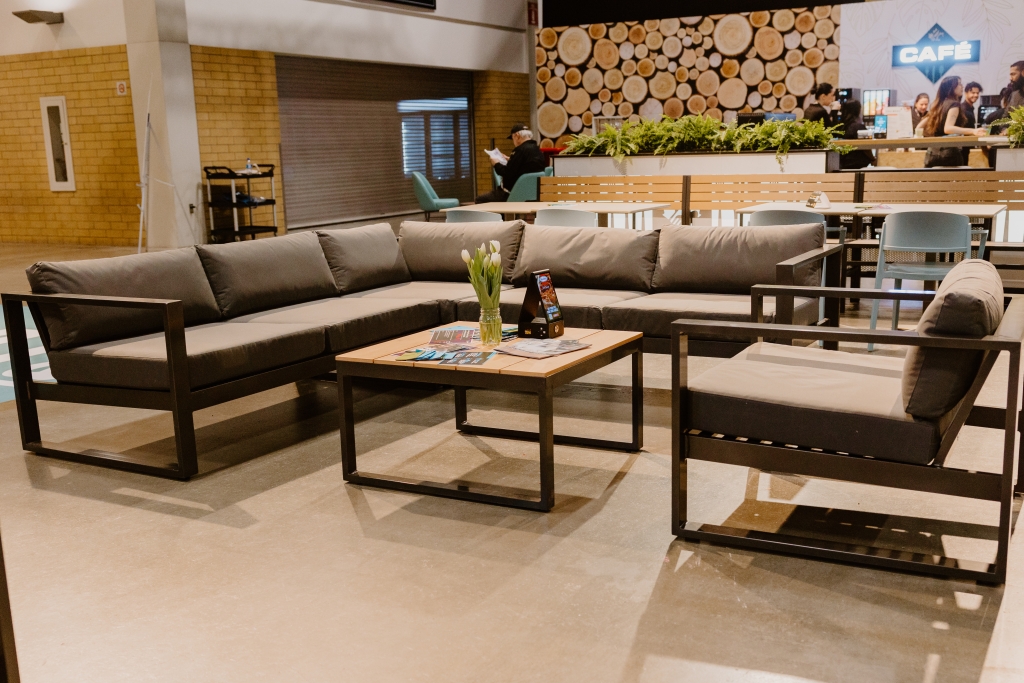

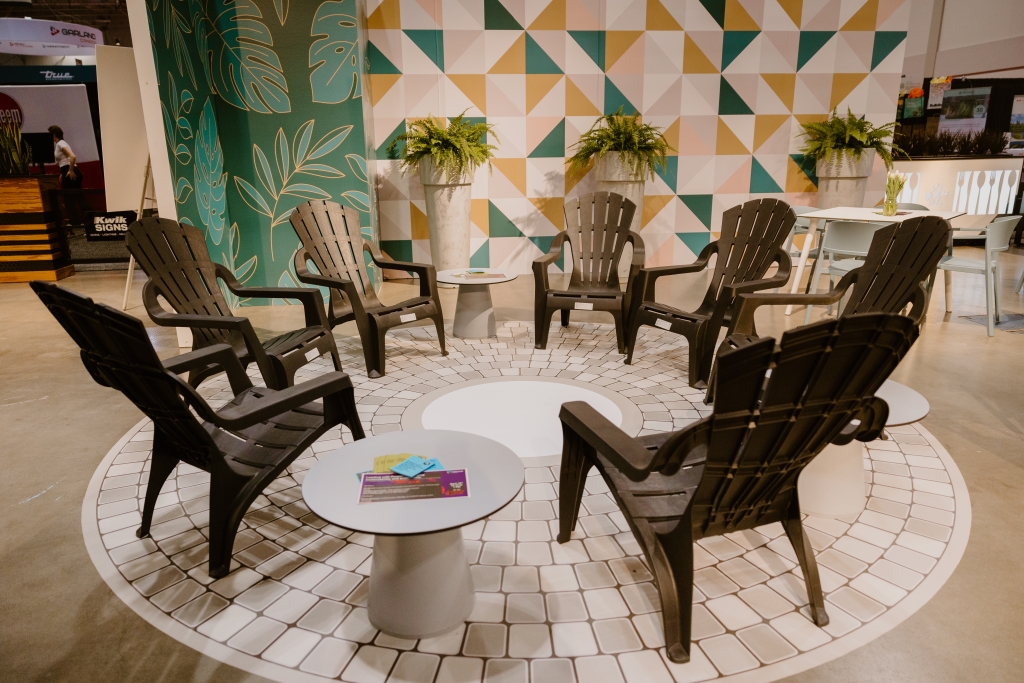

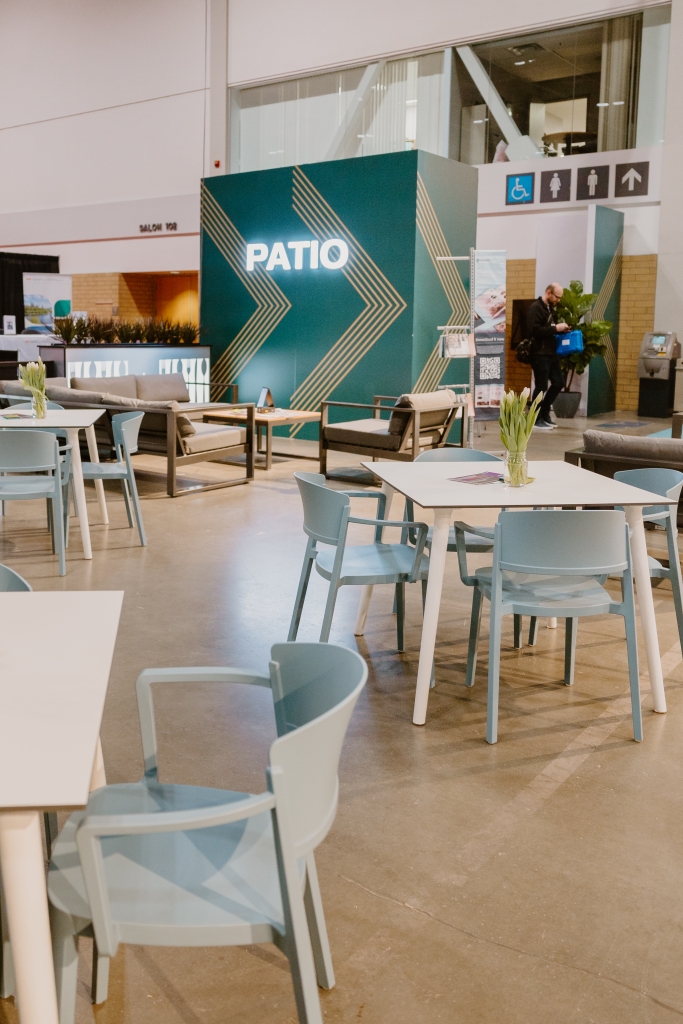


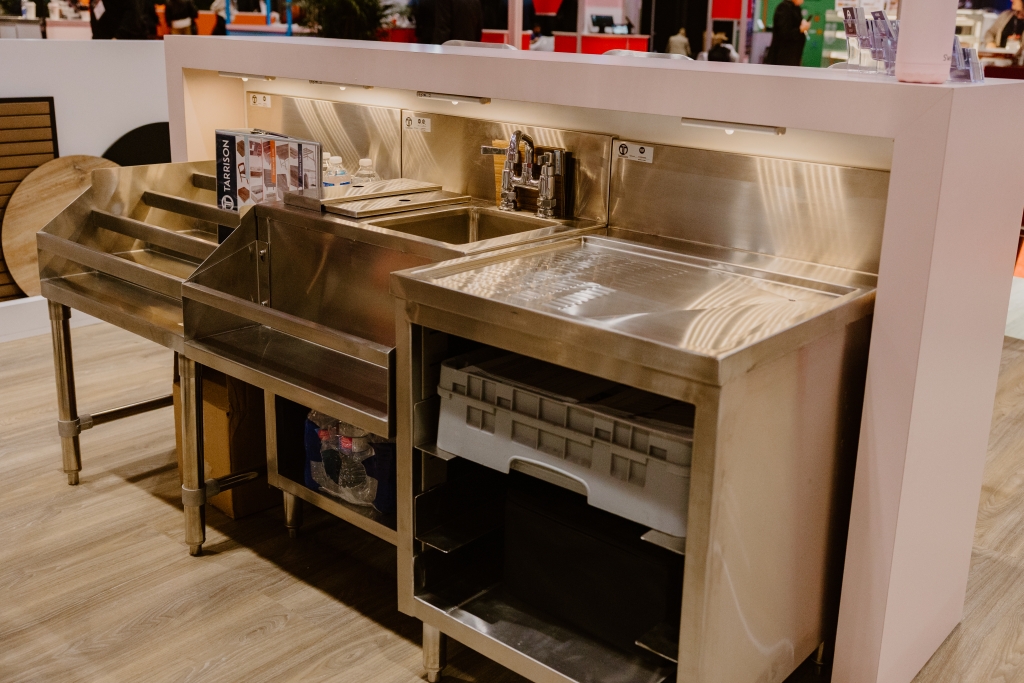



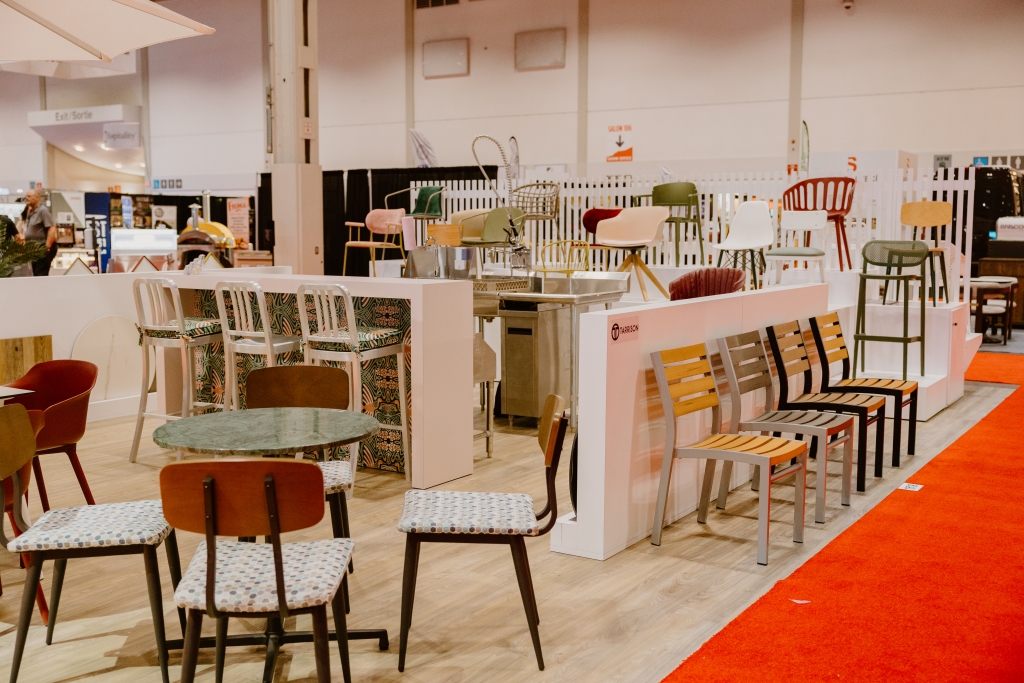

In the spirit of “Heart and Hustle” (the theme for RC Show this year), I wanted to sum up the vibe and the biggest lessons to take away from the show.
1. The Industry is All About Facetime
During the pandemic, the world became increasingly reliant on communicating through email, messaging platforms, and virtual meetings. While these channels were important during the crisis, they lacked the ability to build the same deep and sincere connections with people that in-person interactions can offer. In hospitality, the personal touch is not just a nice bonus, but rather the core of what hospitality is. It requires respectful business practices and stellar customer service. This importance of personal connection makes facetime a requirement for the hospitality industry in all our interactions.
What Does Facetime Mean?
When it comes to strong and meaningful interactions, having the opportunity to read the energy of the person you’re talking to creates a partnership and feedback loop that forms a bond. This is especially crucial in the hospitality industry, where creating strong bonds is fundamental to providing excellent service.
To achieve this, companies need to start by building a strong internal culture that extends outward to interactions with clients. The RC show in Toronto highlighted the importance of fostering a culture of Facetime that prioritizes face-to-face interactions, which are essential to building lasting relationships with customers.
People Buy From People
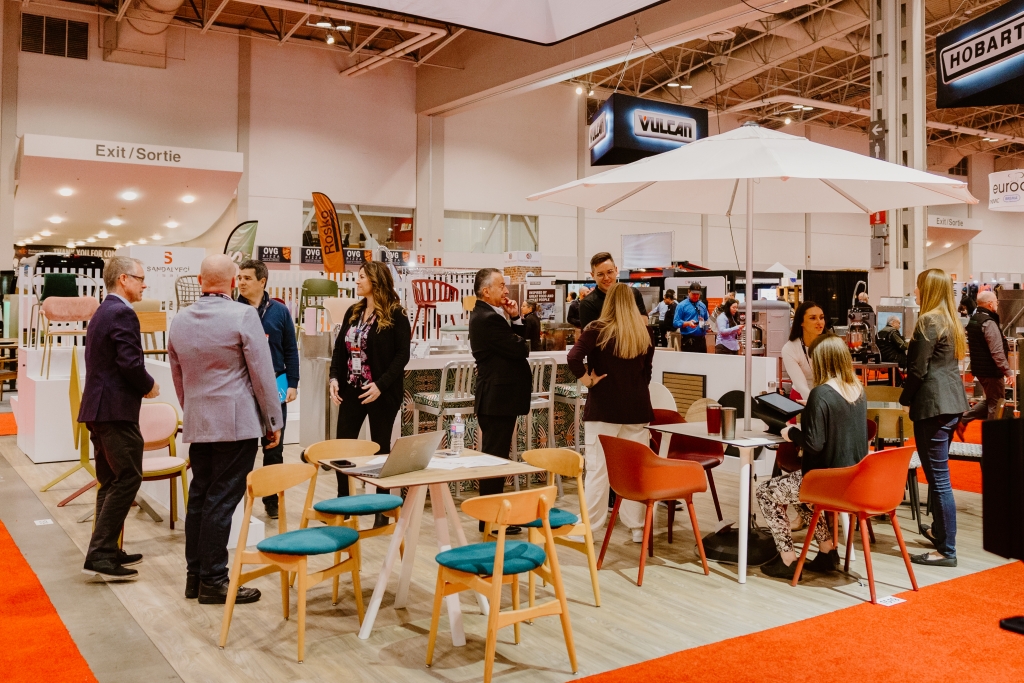
As much as traditional marketing and thinking might tell us differently, people don’t buy from companies. People buy from people. Making a personal connection with customers and clients is critical in showing them who they want to interact with and buy from. If you want to show clients that you are personable, you must truly be personable behind the scenes. It starts with company culture, pride, and honesty, and that honesty will bleed through to your external reputation. Putting a face to a name is invaluable. Unfortunately, the pandemic has accidentally created a culture of hiding behind an email signature. To combat this, encourage and facilitate face-to-face interactions between coworkers and colleagues at all levels of your organization.
2. Listen to Fresh Faces and Ideas
While the younger generations may have trends that may seem unusual to their forebears, they are also the ones with cutting-edge ideas that shape the future of the industry. It’s vital to listen to them as they shape the industry’s future. Unfortunately, the foodservice and hospitality industries haven’t always been the most welcoming place for these fresh ideas (have you ever heard a supervisor say, “We’ve always done it this way, so we won’t do it differently”). Especially as we saw trends and spending change so rapidly throughout the pandemic, the younger generations have not been recognized as the fount of information that they truly are.
Moreover, this group of young professionals represents a younger purchasing demographic that is heavily experience-focused. As a result, finding ways to enhance their experience is crucial for the industry’s success.
Experience-Focused Millennials and Gen Z
The next wave of consumerism is upon us, and it’s being driven by millennials, who were born between 1981-1996 and are now aged 27-42. This group represents a quarter of the global population and is currently in their prime spending years, with more disposable income than ever before. Just behind them, we have Generation Z, who make up another quarter of the global population. In just a few years, Gen Z will make up a quarter of the workforce and become a significant portion of consumers. Given the size and spending power of these two generations, it’s important to consider their impact on the hospitality and foodservice industries. By understanding their spending habits and preferences, businesses can adapt and stay ahead of the curve to meet their evolving needs and preferences. So, what is there to know about these powerful generations?
Millennials are all about having a good time. They want to spend their time and money on experiences that create lasting memories. This can include attending concerts, social events, athletic pursuits, and cultural experiences of all kinds. A study from Eventbrite explains that this emphasis on collecting experiences rather than acquiring tangible goods, sets millennial spending apart from older generations at their age, and is a reflection of their aspirations. More than 3 in 4 millennials (78%) would choose to spend money on a desirable experience or event over buying something desirable and 55% of millennials say they’re spending more on events than ever before. For many, the focus is shifting towards living a meaningful and fulfilling life, with experiences taking precedence over possessions and status. As a result, the experience-based service industry is poised for growth, fueled by the next generation’s interest in the experience economy and their ability to invest in it.
Generation Z is the first age group to be raised in a digital environment, which has shaped their expectations for seamless hospitality experiences. They expect everything from booking reservations to automatic bill payments to be done online, and they want access to comprehensive digital information about a hotel, restaurant, or event before committing to it. Additionally, Gen Z is the most ethnically diverse generational group, and more than half of them prefer eco-friendly or socially responsible brands.

Finally, research shows that 41% of Gen Z and millennial consumers are more likely to take action after seeing a sponsored ad. As these two generations continue to gain spending power, it’s essential for businesses in the hospitality industry to recognize and cater to their unique preferences and habits in order to remain competitive.
Go to the Source
So, how do hospitality and foodservice related companies get in on this uptick early enough to benefit from it? By listening to the same people who desire these experiences. Not only are the major spenders in food service and hospitality getting younger, but the industry professionals who know what customers want – because they are part of the same demographic – are getting younger too.
For instance, the younger generation understands the importance of making all information available online so that customers can research independently ahead of time before reaching out for a personal touch. Make that information accessible, no matter the abilities of the potential customer. Embrace technologies and new ways of doing things. Leveraging these ideas and insights by listening to and implementing them is the future of riding the wave of interest in food service and hospitality.
Lastly, as a young(ish) face in the foodservice equipment industry specifically, stop looking for the oldest person in the room to make the big decisions. We still have a lot of ageism in various facets of foodservice and hospitality sectors, including the assumption that younger people will hold a title that is lower in seniority than their colleagues. If people keep thinking this way, they are going to be left wondering what happened as these new trends and buying power pass them by!
3. The Elevator Pitch is Dead
Although the elevator pitch is still commonly used, it is an outdated method of selling. It’s uncomfortable for everyone involved to listen to someone desperately scramble to sell themselves and their product. Furthermore, no one truly enjoys being “sold to.” Thus, abandoning awkward (and potentially rude) methods of selling is a crucial step towards the future of multiple industries. But if we shouldn’t rely on the elevator pitch, how should we sell?
A Better Way to Sell
The most fundamental parts of selling can be boiled down to education and understanding, and it starts with you. Asking your customers about themselves so you can understand their brands, needs, and pain points and then educating yourself on how to fill those needs gives you the tools you need to make the sale. More importantly, it places the foundation for a long-term sales relationship with your client.

But selling is not just about providing solutions; it’s about building trust and rapport with your clients. Having authentic conversations that focus on their needs, rather than your pitch, can help establish a foundation of trust and increase the likelihood of long-term business relationships.
And please, never just drop in on someone at their office. It’s just rude. Respect people’s time and boundaries and make an appointment!
Lessons Learned from the RC Show and on Sales Trends in the Hospitality Industry
The Restaurants Canada Show in Toronto presented a perfect opportunity to bring together the food service and hospitality industry following a challenging couple of years marked by numerous changes. While there are still changes to navigate and innovations to implement, taking the lessons learned from the RC Show and using them to fuel forward growth will make the journey less turbulent.
At Tarrison, we are passionate about people and growth. We were thrilled to see everyone at the event, and we are excited about the future of the food service and hospitality industry.
Tradeshow photography by Katrina Sutton
 +1 (905) 825 9665
+1 (905) 825 9665


